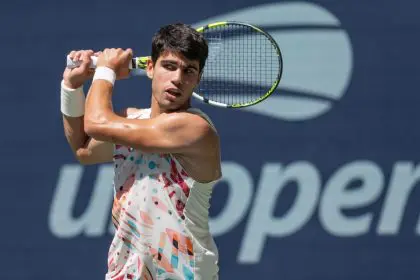At just 20 years old, American tennis phenom Coco Gauff etched her name into the sport’s history books at the inaugural Riyadh Open in Saudi Arabia. Her victory on Nov. 9 distinguished her as the youngest player since Kim Clijsters in 2002 to defeat both world number one and two ranked players in a Women’s Tennis Association finals tournament. This achievement comes at a pivotal moment in women’s tennis, as the sport continues to evolve and break new ground in regions previously untapped by professional tennis.
A battle for the ages
The championship match showcased Gauff’s remarkable resilience as she overcame Chinese competitor Zheng Qinwen in an intense three-set contest. After dropping the first set 3-6, Gauff mounted a spectacular comeback, securing the next two sets 6-4, 7-6. The match, lasting over three hours, demonstrated the physical and mental fortitude that has become Gauff’s trademark. This triumph positions her alongside tennis legend Maria Sharapova, who claimed the title in 2004 – coincidentally the year of Gauff’s birth. The parallels between these two prodigies extend beyond their age, as both have shown exceptional poise under pressure and the ability to perform at the highest level during crucial moments.
Path paved with prestigious victories
Before clinching the championship, Gauff demonstrated her exceptional abilities by dispatching the world’s top-ranked players, Aryna Sabalenka and Iga Świątek. These victories weren’t just routine wins; they were masterclasses in strategic tennis playing. Against Sabalenka, Gauff showcased her improved serve and groundstrokes, while her match against Świątek highlighted her enhanced defensive capabilities. The tournament’s unprecedented $4.8 million prize purse – the largest in tennis history – further amplified the significance of her achievement and marks a new era in women’s tennis compensation.
Saudi Arabia’s sporting evolution
The Riyadh Open represents Saudi Arabia’s first foray into hosting a WTA event, marking a significant shift in the kingdom’s approach to women’s sports. The tournament organizers have initiated various programs, including coaching clinics designed to inspire and empower local female athletes. These initiatives are part of a broader strategy to develop grassroots tennis programs throughout the country, with particular emphasis on creating opportunities for young women and girls. The tournament’s infrastructure, including state-of-the-art facilities and advanced training programs, demonstrates a substantial investment in the future of women’s tennis in the region.
Navigating complex waters
The decision to host the tournament in Saudi Arabia has sparked intense debate within the tennis community. Critics have questioned the WTA’s choice of venue, citing concerns about women’s rights. The discussion extends beyond sports, touching on broader issues of social change and international relations. The tournament’s organization has highlighted the delicate balance between promoting sports development and addressing human rights concerns. This debate has prompted broader conversations about the role of international sporting events in facilitating social change and the responsibilities of global sports organizations in promoting human rights and equality.
Looking ahead
As Gauff continues her meteoric rise in professional tennis, her Riyadh Open victory serves as both a personal milestone and a catalyst for important conversations about the intersection of sports and social progress. The tournament’s success and controversy may influence future decisions about international sporting events in the region. The impact of this victory extends beyond the tennis court, potentially influencing the trajectory of women’s sports in the Middle East and setting new precedents for tournament organization and player compensation worldwide. The event has also sparked discussions about the future of women’s tennis, including the potential for more tournaments in non-traditional markets and the importance of maintaining a balance between commercial opportunities and ethical considerations.
The legacy of this tournament will likely be multifaceted, encompassing not only Gauff’s remarkable achievement but also its role in shaping the future landscape of women’s tennis. As the sport continues to evolve, the Riyadh Open may be remembered as a pivotal moment that challenged conventional boundaries and opened new possibilities for the next generation of female athletes.
















